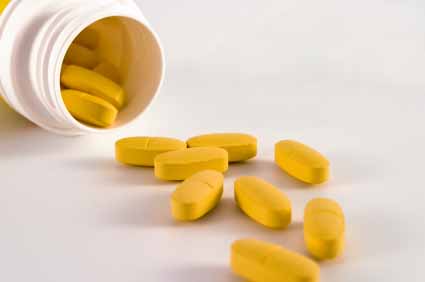 Coenzyme Q10 or CoQ10 is a substance that garners a lot of attention, not just in relation to diabetes health. It is one of the most studied nutritional supplements and the list of benefits it is supposed to deliver is tremendous. This supplement should definitely make the list of things you want to talk to your doctor about on that next trip to see him or her.
Coenzyme Q10 or CoQ10 is a substance that garners a lot of attention, not just in relation to diabetes health. It is one of the most studied nutritional supplements and the list of benefits it is supposed to deliver is tremendous. This supplement should definitely make the list of things you want to talk to your doctor about on that next trip to see him or her.
So what exactly is it? A coenzyme is a substance that assists enzymes process food, perform bodily functions and protect the body. CoQ10 is an antioxidant and vitamin like compound that plays a critical role in how your body creates 95% of its energy. It is concentrated in the areas of your body that require the most energy, like your heart, kidneys and liver, but it is found throughout your body.
Interestingly enough, the substance was discovered in the 1950’s by researchers in Wisconsin studying cow hearts.
HEALTH CLAIM
So what are CoQ10’s claims to fame? Overall, it is thought that it supports health by fighting disease caused by oxidation in your cells. One of the reasons CoQ10 gets a lot of attention, as a supplement, is that levels of CoQ10 are thought to decline under the following circumstances:
- As you Age
- If you have a disease such as cancer, hear disease, diabetes, cancer, Muscular Dystrophy, AIDS, and Parkinson’s disease.
- As a side effect for certain prescriptions.
Another reason it gets a lot of attention is that there is a fairly extensive list of diseases that the substance may help combat:
- Heart Disease
- Heart Failure
- High Cholesterol
- Diabetes
- High Blood Pressure
- Radiation Injury
- Parkinson’s Disease
Some people even tout CcoQ10 as an anti aging supplement. Studies for all of these uses are mixed. Some are very encouraging, while others find no benefit. This seems to be the drill with almost all nutritional supplements.
Nonetheless, depending upon your circumstance it is probably worthwhile having a conversation with your doctor about it, particularly if you are at risk for heart disease. As you will see below, there are few know side effects from taking it.
DIABETES HEALTH
Let’s take a closer link at the link between CoQ10 and diabetes health. Obviously, if you have a complication from diabetes like heart disease, then you may want to consider supplementing with C0Q10.
There are also some newer studies that claim CoQ10 can help people lower their glucose levels. One 2012 Japanese study found that a reduced form of CoQ10 called ubiquinol helped stimulate insulin secretion and lower glucose levels in type 2 diabetics.
Over a 12 week period, the subjects were given their normal prescription diabetes medications and 200mg of ubiquinol. The result was that glucose levels were significantly reduced.
The challenge of course is that there are many studies that did not find a relationship. Moreover, this study was very small, looking at only 9 people with type 2 diabetes.
Another area where CoQ10 may be helpful is for treatment of diabetic neuropathy. One recent animal study found that the compound reduced diabetic neuropathy in rats.
DOSAGES
There is no Recommended Daily Allowance (RDA). There is also no upper limit dosage set for CoQ10, but at least one study stated that you should take no more than 1200mg per day.
However, some people taking as little as 100mg per day have reported mild insomnia. Other side effects that have been reported include: light sensitivity, heartburn, nausea, fatigue, dizziness, irritability, headache, and rashes.
There may be other side effects depending upon what other prescription medications you are taking. As always, if you plan on using nutritional supplements, check with your doctor.
SOURCE:
Coenzyme Q10 prevents peripheral neuropathy and attenuates neuron loss in the db-/db- mouse, a type 2 diabetes model, Proc Natl Acad Sci U S A. 2013 Jan 8;110(2):690-5. Epub 2012 Dec 24 (accessed May 2013).
The reduced form of coenzyme Q10 improves glycemic control in patients with type 2 diabetes: an open label pilot study, Biofactors. 2012 Nov-Dec;38(6):416-21. Epub 2012 Aug 8. (accessed May 2013)
Risk assessment for coenzyme Q10 (Ubiquinone), Regul Toxicol Pharmacol. 2006 Aug;45(3):282-8. Epub 2006 Jun 30 (accessed May 2013).
CoQ10: A Supplement Whose Time May Have Come (accessed May 2013)
By Erich Schultz – Last Reviewed April 2013.
